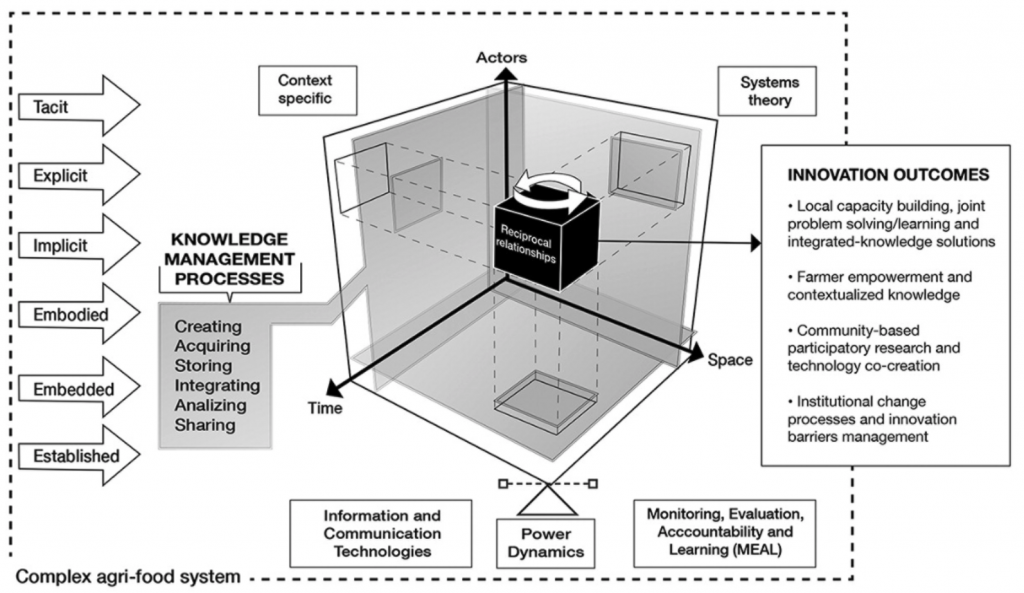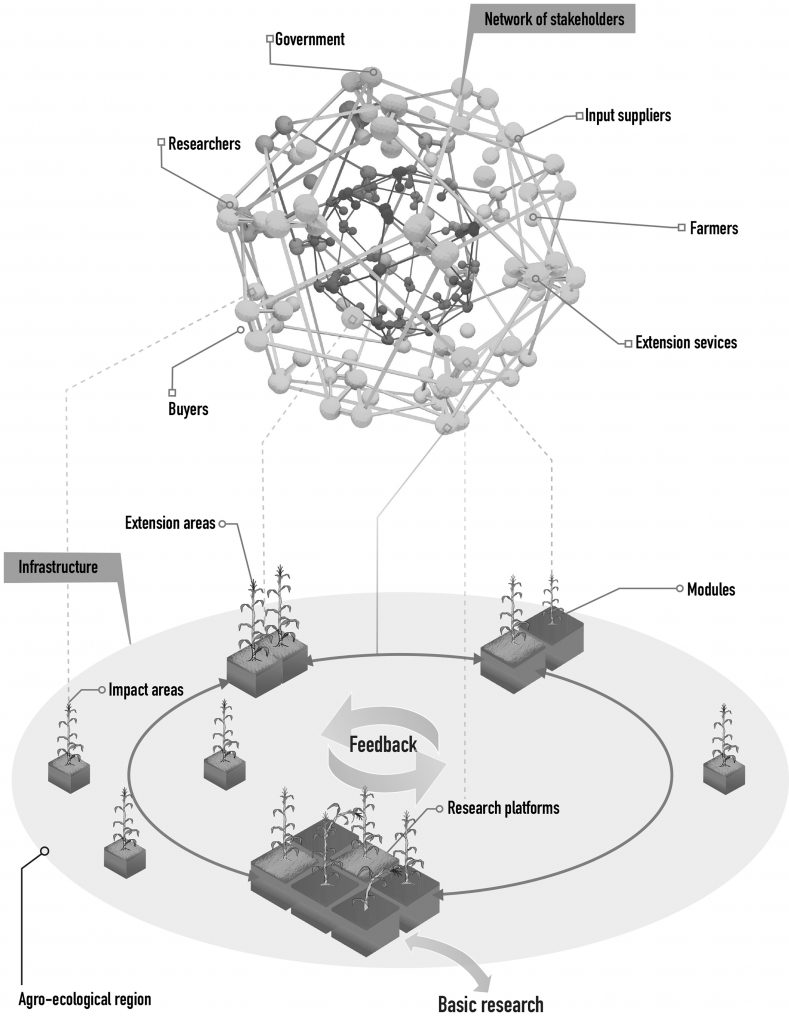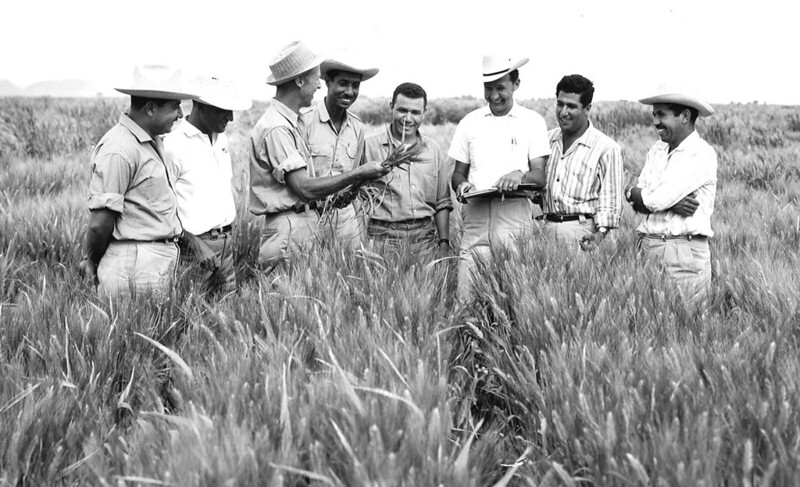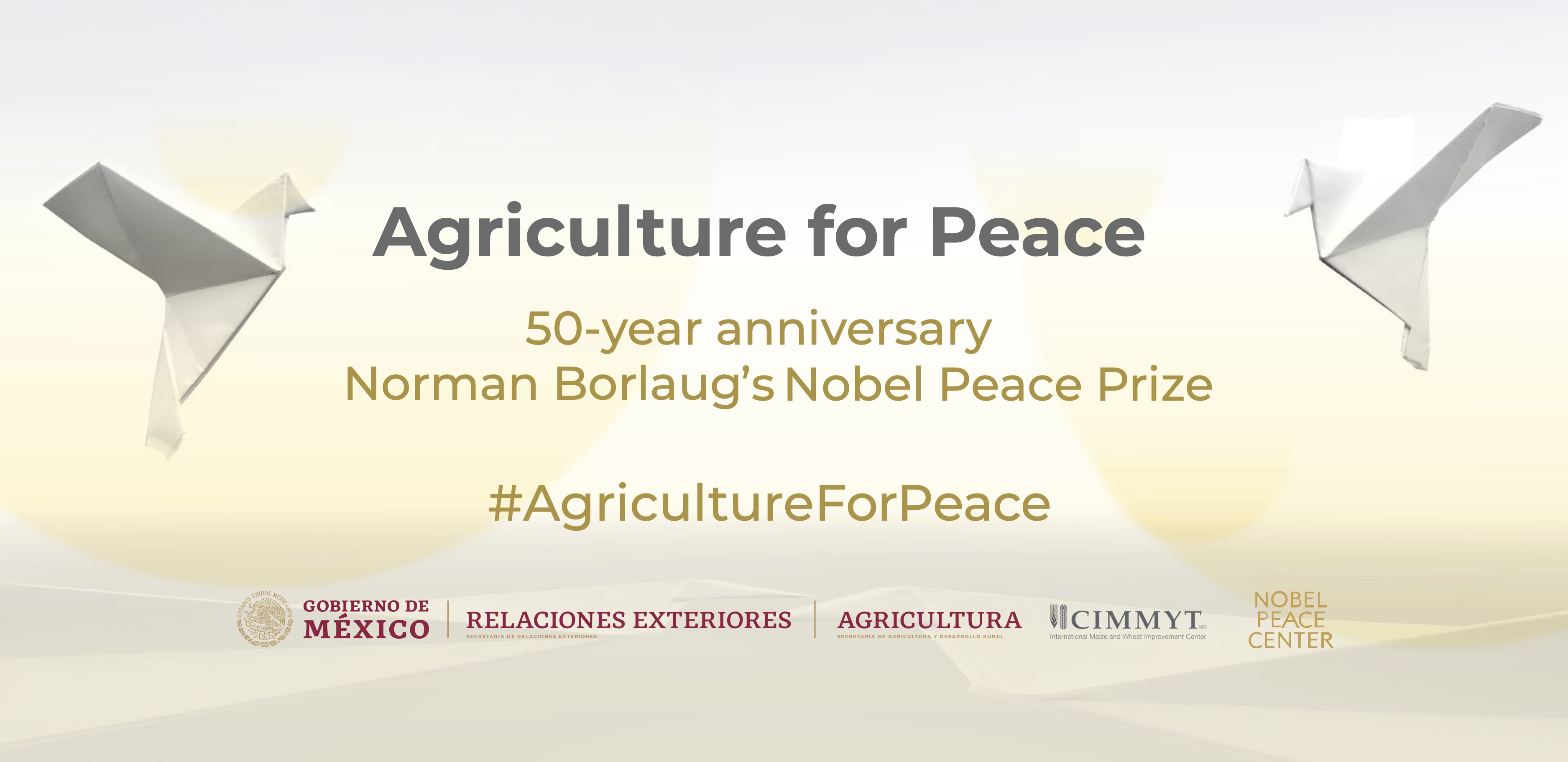
The key to transforming food production systems globally lies in knowledge management processes, according to a team of researchers from the International Maize and Wheat Improvement Center (CIMMYT).
The challenge is to combine traditional knowledge with state-of-the-art scientific research: to meet regional needs for improvement in farming systems with knowledge networks fostering innovative practices and technologies that increase yields and profits sustainably.
A group of CIMMYT researchers led by Andrea Gardeazábal, Information and Communications Technology for Agriculture Monitoring and Evaluation Manager, recently published a proposal for a new knowledge management framework for agri-food innovation systems: Agricultural Knowledge Management for Innovation (AKM4I).
“We are proposing a knowledge management framework for agricultural innovation that addresses the need for more inclusive and environmentally sustainable food production systems that are able to provide farmers and consumers with affordable and healthy diets within planetary boundaries,” Gardeazábal said.
The AKM4I framework was designed to help agricultural development practitioners understand how farming skills and abilities are developed, tested and disseminated to improve farming systems in real-life conditions.
Following systems theory principles, the model empirically describes how information is created, acquired, stored, analyzed, integrated and shared to advance farming knowledge and produce innovative outcomes that effectively contribute to: collaboratively building local capacities for developing joint problem-solving abilities and integrated-knowledge solutions; empowering farmers with site-specific knowledge; co-creating technology and conducting participatory community-based research; and bridging innovation barriers to drive institutional change.
Knowledge access for systems transformation

The framework builds on CIMMYT’s learnings from MasAgro, a bilateral project with Mexico that relies on participatory research and knowledge and technology development networks for sustainable maize and wheat production systems.
This CIMMYT project was recently acknowledged with the 2020 Innovative Applications in Analytics Award for developing groundbreaking monitoring, evaluation, accountability and learning (MEAL) systems and tools for publicly funded researchers and field technicians who advise more than 150,000 farmers in Mexico.
“Through the outlined principles and processes, the AKM4I framework can assist in closing the cycle of continually re-creating knowledge, evaluating and iterating upon innovations, building coalitions to democratize knowledge access and utilization, and using MEAL to facilitate course-correction of all stages of knowledge management,” concludes the study.
Bram Govaerts, CIMMYT Chief Operating Officer, Deputy Director General for Research and Integrated Development Program Director, believes the AKM4I framework should be the cornerstone of agri-food systems transformation, including the current reformation of CGIAR’s partnerships, knowledge, assets, and global presence.
“The MasAgro hub and knowledge management model will become the operational model of many regional initiatives of CGIAR,” Govaerts said.
Read the study:
Knowledge management for innovation in agri-food systems: a conceptual framework

 Nutrition, health and food security
Nutrition, health and food security 


